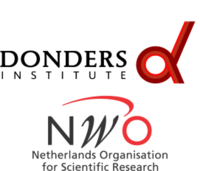PhD Position in Open Source MRI Sequence Development for Myelin Water Imaging and Beyond!
This PhD position is part of a larger research initiative to improve myelin water imaging (MWI) in the context of neurodegenerative, neuro-inflammatory, and neurovascular diseases. The successful candidate will contribute to the development of fast, robust, and clinically applicable MRI sequences for multi-compartment relaxometry using open-source platforms.
| Job type: | PhD Student |
| Job location: | Radboud University, Nijmegen, The Netherlands. |
| Deadline: | 2024-12-31 |
We are offering an exciting opportunity for a highly motivated PhD student to join our cutting-edge project to advance neuroimaging techniques for monitoring neurological disorders. This PhD position is part of a larger research initiative to improve myelin water imaging (MWI) in the context of neurodegenerative, neuro-inflammatory, and neurovascular diseases. The successful candidate will contribute to the development of fast, robust, and clinically applicable MRI sequences for multi-compartment relaxometry using open-source platforms. In this project, you will work with an international and interdisciplinary team of leading experts to develop new imaging sequences and image reconstruction techniques. This work will be developed on an open-source platform (Pulseq) that is compatible with multiple MRI vendors (Siemens, Philips) and will be tested across a range of magnetic field strengths (1.5T, 3T, and 7T). The focus will be on creating robust and fast imaging methods that can be deployed in clinical trials.
Desired Qualifications:
- A Master’s degree (or equivalent) in physics, biomedical engineering, medical imaging, or a related field.
- Strong background in MRI physics, sequence development, and image reconstruction techniques.
- Experience with programming in MATLAB, Python, or similar environments.
- Strong analytical skills and the ability to work both independently and as part of a team.
- Excellent communication skills in English (both written and oral).
What We Offer:
- A dynamic and collaborative research environment at the forefront of MRI technology.
- Mentorship from leading experts in the field, including Prof. José P. Marques and Prof. David G. Norris (Donders Centre for Cognitive Neuroimaging) in collaboartion with Dr. Berkin Bilgic (Massachusetts General Hospital), Martijn Cloos (Radboud University), Prof. Maxim Zaitsev (Freiburg).
- Access to state-of-the-art MRI facilities across multiple institutions and magnetic field strengths.
- The opportunity to contribute to the development of clinically relevant tools that can have an impact on the monitoring of neurological disorders.
- Competitive salary and funding for conference attendance and skill development.
Join us in pushing the boundaries of MRI technology and making a real impact on neurological healthcare!
Location:
Radboud University, Nijmegen, The Netherlands.
Application Process:
Applications will open formally in mid-october. A CV, cover letter and contact information for two references.
For more information contact José P. Marques: jose.marques@donders.ru.nl

